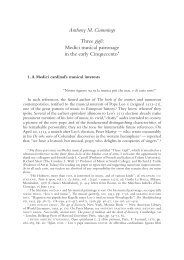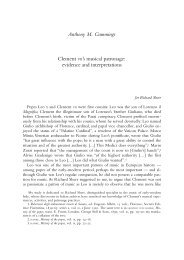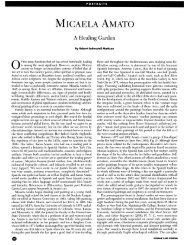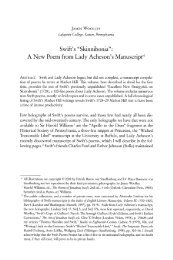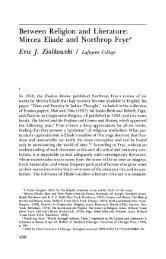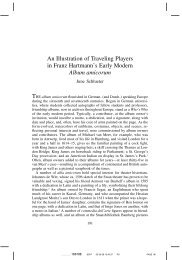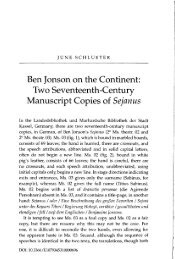Ziolkowski-Dost ... ianTradition-2001-p156.pdf
Ziolkowski-Dost ... ianTradition-2001-p156.pdf
Ziolkowski-Dost ... ianTradition-2001-p156.pdf
You also want an ePaper? Increase the reach of your titles
YUMPU automatically turns print PDFs into web optimized ePapers that Google loves.
Reading and incarnation in <strong>Dost</strong>oevsky<br />
163<br />
import o f the reading-act itself for those characters. O f course this is<br />
not to overlook that Bakhtin maintained his ostensible focus largely<br />
for political reasons, and that readers might in some instances read<br />
between his lines to glean possible religious implications. For during<br />
the years leading up to the initial publication o f his <strong>Dost</strong>oevsky book<br />
(1929), he had, in response to the Soviet crack-down on religious<br />
institutions, practices and expression, ‘reoriented his approach in his<br />
writings and largely abandoned his N eo-Kantian vocabulary for one<br />
that was more secular and sociological.’31 Yet, as Ruth Coates has<br />
shown, Bakhtin remained, behind any appearance to the contrary, ‘a<br />
philosopher whose work is fed by certain aspects o f the Christian<br />
vision o f and for the world’.32<br />
<strong>Dost</strong>oevsky’s fictive world is saturated with the ubiquitous trappings<br />
o f the modern typographic culture - the Gutenberg galaxy, as<br />
Marshall M cLuhan so memorably dubbed it - which helped make<br />
widespread literary incarnation possible in the first place.33 Not<br />
surprisingly, the financial attraction o f the publishing business itself<br />
is manifest: Dm itry Karam azov, in prison, states his ambition to start<br />
a newspaper (BK 558), and peripheral characters such as Razum i-<br />
khin and Rakitin also entertain plans o f going into publishing (CP,<br />
263; BK 73). To be sure, the culture o f print had developed very late<br />
in Russia, where more manuscripts were still in circulation than<br />
printed books until the mid-eighteenth century. In fact, the print<br />
business o f Nikolai Novikov produced more books between 1775 and<br />
1789 than had been published in Russia since the introduction of<br />
printing.34 Nonetheless, the nineteenth-century Russian society depicted<br />
in <strong>Dost</strong>oevsky’s novels is one whose intelligentsia and educated<br />
elite reveres the published word, as betokened by<br />
Raskolnikov’s initial reaction when he sees his own article in the<br />
newspaper: he experiences ‘the strange and painfully sweet sensations<br />
o f the author who sees himself in print for the first time’ (CP,<br />
434). Given all the attention he receives for this article, he anticipates<br />
Ivan Karam azov, who achieves early recognition for his own<br />
published journalism, especially his article on ecclesiastical courts<br />
(BK, 11).<br />
The phenomenon o f literary incarnation born in the Quixote - a<br />
novel published less than a century and a half after the death of<br />
Johannes Gutenberg (c. 1400-68) - seems pervasively inherent in<br />
the more fully developed print culture o f <strong>Dost</strong>oevsky’s characters.<br />
The phenomenon seems most blatant when one character can




